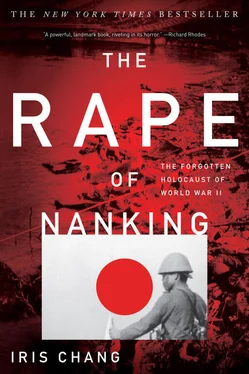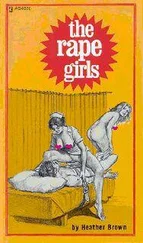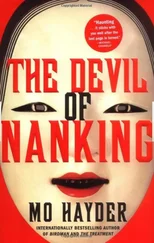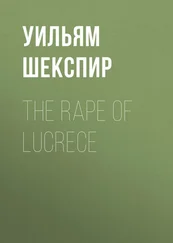THE ONLY SURGEON IN NANKING
It is not surprising that Robert Wilson stayed in Nanking when virtually every other surgeon left, for Nanking, the city of his birth and boyhood, had always commanded a special place in his heart. Born in 1904, Wilson was reared by a family of Methodist missionaries who had shaped many of Nanking’s educational institutions. His uncle, John Ferguson, founded the University of Nanking. His father worked as an ordained minister and middle-school instructor in the city, while his mother, a college-educated Greek scholar who spoke several languages fluently, ran her own school for missionary children. As a teenager, Robert Wilson even learned geometry from Pearl Buck, who would later win the Nobel Prize in Literature for her novels about China. Thriving in this environment, and displaying exceptional intellectual promise, Wilson won, at age seventeen, a scholarship to Princeton University. Upon graduation from college, he taught Latin and mathematics for two years at a high school in Connecticut, enrolled in Harvard Medical School, and then served as an intern at St. Luke’s Hospital in New York, where he courted and married the head nurse. But rather than pursue a career in the United States, Wilson decided that his future lay in his hometown of Nanking, and taking his bride with him, he returned in 1935 to practice medicine at the University of Nanking Hospital.
The first two years for the Wilsons were perhaps the most idyllic of their lives. Time was marked by a slow-paced charm—dinners with other missionary couples, elegant teas and receptions at foreign embassies, parties at sprawling country villas staffed with private cooks and coolies. In the evenings he read ancient Chinese in its original text and studied under a private tutor to expand his knowledge of the language. He also took every Wednesday afternoon off to play tennis. Sometimes he and his wife would go to the lake together and have dinner on a boat, inhaling the perfumed air as they drifted through watery lanes of red lotus blossom.
War, however, shattered forever the timeless serenity the Wilsons had enjoyed in Nanking. After the Marco Polo Bridge incident in July, the people of Nanking began to carry gas masks in the street, along with chemical solution and layers of gauze, fearing a Japanese poison-gas attack. By August 1937, when the Japanese started to bomb the capital, his wife Marjorie had boarded a gunboat with their infant daughter Elizabeth and arrived safely at Kuling. But Wilson, fearing his wife and child would starve to death if the war continued, insisted that they return to the United States. Mrs. Wilson complied with his wishes and went back to work at St. Luke’s in New York while her mother cared for the baby. But there was no question that Dr. Wilson himself would stay in Nanking. “He saw this as his duty,” his wife recalled, almost sixty years later. “The Chinese were his people.”
No doubt to dispel loneliness that autumn, Wilson moved into the house of J. Lossing Buck, the former husband of Pearl Buck, and the house soon filled up with his friends: the surgeon Richard Brady, the United Christian missionary James McCallum, and other people who would later serve as members of the International Committee for the Nanking Safety Zone. Like Wilson, many of these men had sent their wives and children away from Nanking.
When he wasn’t busy with patients, Wilson often wrote letters home to his family. Most contained gruesome descriptions of the victims of Japanese bombs, such as the girl who had crouched with her back to an explosion, only to have her buttocks ripped off. From the casualties of war he dug out a growing heap of shrapnel and bullets—enough, he wrote cynically, to open “a respectable museum” before the war was over.
Even though he knew that the Japanese had no qualms about bombing hospitals, Wilson continued to go to work. On September 25, in one of the worst air raids Nanking had ever experienced, the Japanese aimed two 1,000-pound bombs at the Central Hospital and Ministry of Health, despite the presence of a large red cross clearly painted on one of the roofs. The bombs landed only fifty feet away from a dugout where one hundred doctors and nurses were hiding.
Wilson did everything possible in the hospital to minimize the risk of attracting Japanese bombs. Heavy black curtains were drawn over the windows to hide lit rooms from Japanese aviators. But the city crawled with rumors of spies guiding pilots to key targets with red and green lanterns at night. During one raid a stranger crept into the hospital with a red-shielded flashlight instead of a green- or black-shielded one and aroused suspicions when he tried to open a window that had been securely shut to prevent the seepage of poison gas. He raised even more eyebrows when he asked a Chinese aviator patient a number of unusual questions about the flying height and range of Chinese bombers.
As autumn drew to a close, Wilson found himself tremendously overworked. More people needed medical attention than ever before—not only civilian victims of Japanese bombs but veterans from Shanghai. There were approximately one hundred thousand wounded Chinese veterans in hospitals between Shanghai and the city of Wuhu. Trainload after trainload dumped them off at the station in Hsiakwan, the northern Nanking suburb. Some lay dying on the floor of the station, while others limped aimlessly through the capital. Soldiers who healed were returned to the front, but those who lost arms or legs, those crippled beyond hope, were simply turned loose with two-dollar compensations and instructions to go home. Home was far away for most soldiers. Few had the money or physical energy to get there. Abandoned by their leaders, stranded in the Shanghai-Nanking area, thousands of Chinese veterans—blind, lame, rotting away from wounds and infections—were reduced to begging in the streets.
As the situation worsened, the staff at the hospital shrank. Chinese doctors and nurses fled the city, joining the hundreds of thousands of Nanking residents in their westward migration. Wilson did all he could to dissuade his medical staff from leaving, insisting that under martial law they would have nothing to fear after the city fell. Ultimately, however, he was unable to convince them to stay. By the end of the first week of December there were only three doctors at the University of Nanking Hospital: Robert Wilson, C. S. Trimmer, and a Chinese physician. When Richard Brady, the only other American surgeon in the city, left Nanking because his little girl was seriously ill in Kuling, Wilson was the only person left to perform the hourly amputations. “It is quite a sensation,” he wrote on December 7, “to be the only surgeon in a big war-torn city.”
A week later, Wilson nearly lost his life. On the afternoon of December 13, he had decided to perform a delicate operation on a patient who had suffered severe eye injury from a bomb. Wilson had to remove what was left of the eye in order to save the other one. The eyeball was halfway out when a shell landed fifty yards away from Wilson and exploded, shattering the windows and spraying the room with shrapnel. No one was killed or injured, but Wilson noted that the nurses were “naturally pretty shaky” and wanted to know whether they should continue the operation. “There was obviously nothing else to do,” Wilson wrote, “but I don’t think any eyes have come out that fast.”
By nightfall of December 13, the Japanese had seized complete control of the ancient capital. Wilson saw Japanese flags fluttering all over town. The following day the conquering army began to take over the hospitals in the city. They broke into the main hospital of the Chinese army—located within the Ministry of Foreign Affairs and run by Safety Zone members who had organized themselves as a chapter of the Red Cross—and trapped hundreds of Chinese soldiers inside. The Japanese forbade doctors to enter the hospital or send food to the wounded soldiers, who were later marched out and systematically shot. After three out of four Red Cross hospitals fell in this manner to the Japanese, the International Committee concentrated its efforts on the University of Nanking Hospital.
Читать дальше











